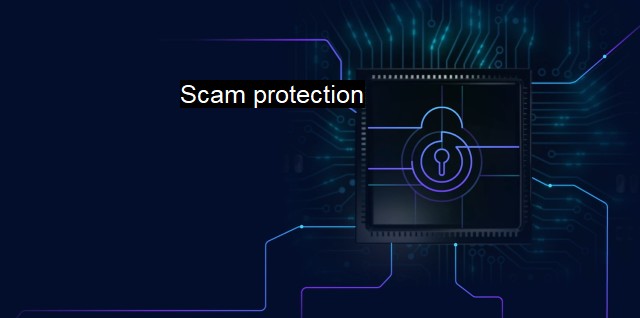What is Scam protection?
Protecting Against Cyber Scams: The Role of Antivirus Measures and Scam Protection in Today's Technology-Driven World.
Scam protection refers to the various security measures implemented to safeguard individuals and organizations from fraudulent activities. It’s a concept that is particularly relevant within the context of cybersecurity and antivirus protection. It operates on the premise that awareness and protection mechanisms are key to avoiding scams which may compromise our personal, financial, and business-related information in the digital environment we live in.Scams have greatly evolved over the years, primarily due to the advancements in technology. Today, the digital age has brought about an upsurge in online scams, making it increasingly important for individuals and businesses to have robust scam protection measures in place. As the internet and digital systems increasingly permeate all areas of our lives, scammers are sophisticatedly adapting their approaches to use these platforms for unethical purposes.
The scope of scam protection extends far beyond individuals alone. Organizations of all sizes are increasingly targeted as they process and manage huge volumes of sensitive data, from customer information to financial transactions. In this context, scams may take the form of phishing emails, malicious software downloads, fraudulent transactions, identity theft, and advanced schemes like CEO fraud.
Cybersecurity plays a primary role in scam protection by providing the controls and processes in the digital world needed to identify, prevent, and respond to scam attempts. A strong cybersecurity approach encompasses a range of strategies used to safeguard systems and data against threats. This includes erecting effective firewalls, keeping meticulous network logs, maintaining up-to-date antivirus software, and educating employees and users about potential threats.
Antivirus software is another key component of scam protection. Designed to detect, eradicate, and warn users of malicious software or 'malware', antivirus acts as a frontline guard for a computer's or network's security. Viruses, Trojans, worms, ransomware, and other malicious software often carry scams within them or serve as means for scammers to infiltrate a device or a network. Through systematic scanning and analyzing data, antivirus software can identify potential threats and deal with them even before they gain access to the system.
The concept of scam protection also has a strong people-orientated element, stressing the importance of awareness and behavioral measures. Vigilance and awareness, after all, are some of our most potent defenses against scams. Because scams often rely on human error or curiosity, education and awareness about the types of scams and how to identify them are crucial. It enables users to make informed decisions when encountering suspicious content, links, or requests.
A multi-layered approach to scam protection usually offers the most robust protection. This typically includes a combination of cybersecurity measures, antivirus software, stringent security policies and practices, regular staff training, and public education. It also includes continuously updated, cutting-edge technology and proactive network monitoring. artificial intelligence (AI) and machine learning are being increasingly utilized to predict, identify, and respond to new scam attempt patterns promptly.
Scam protection is a comprehensive approach that incorporates elements of cybersecurity, antivirus protection, and elements of human awareness to identify, prevent, and respond to scam attempts. Important as it is to be equipped with advanced cybersecurity measures and reliable antivirus software, fostering the skills to identify and respond to potential scams is equally critical. This holistic approach ensures well-rounded protection against the evolving world of scams, safeguarding our digital lives, wealth, and business continuity.

Scam protection FAQs
What is scam protection?
Scam protection refers to measures or processes put in place to safeguard internet users from online fraudsters or scammers who use various tactics to swindle people of their money and personal information.How can I protect myself from online scams?
There are several ways to protect yourself from online scams, including installing antivirus software on your device, avoiding suspicious links, not sharing personal information, using strong passwords, and being wary of offers that seem too good to be true.What are the common types of online scams?
Some of the most common types of online scams include phishing emails, fake websites, tech support scams, online shopping scams, romance scams, and investment scams.How can I tell if an offer or email is a scam?
Some of the red flags to look out for include offers that seem too good to be true, emails with poor grammar and spelling mistakes, emails asking for personal or financial information, offers that require you to act fast or risk losing out, and unverified or shady websites.| | A | | | B | | | C | | | D | | | E | | | F | | | G | | | H | | | I | | | J | | | K | | | L | | | M | |
| | N | | | O | | | P | | | Q | | | R | | | S | | | T | | | U | | | V | | | W | | | X | | | Y | | | Z | |
| | 1 | | | 2 | | | 3 | | | 4 | | | 7 | | | 8 | | |||||||